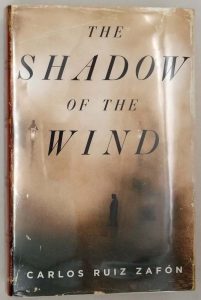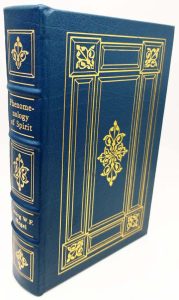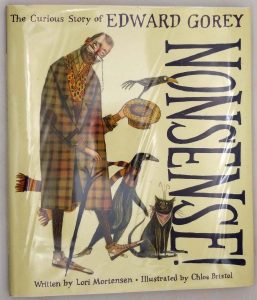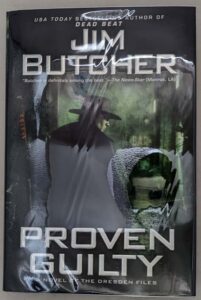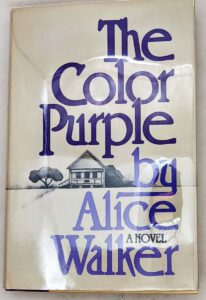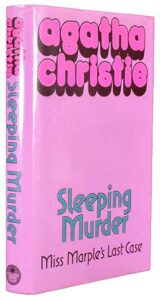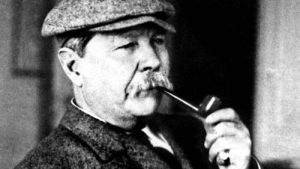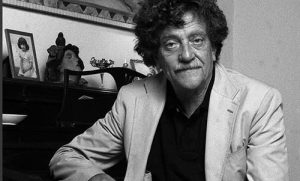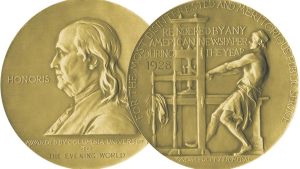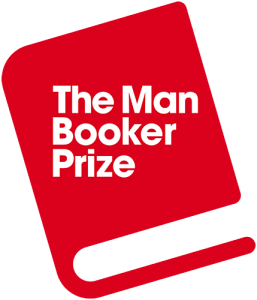
Stephen Edwin King (1947 – ) is an American author of horror, supernatural fiction, suspense, crime, science-fiction, and fantasy novels. His books have sold more than 350 million copies, and many have been adapted into films, television series, miniseries, and comic books. King has published 63 novels, including seven under the pen name Richard Bachman, and five non-fiction books. He has also written approximately 200 short stories, most of which have been published in book collections.
Stephen King has received Bram Stoker Awards, World Fantasy Awards, and British Fantasy Society Awards. In 2003, the National Book Foundation awarded him the Medal for Distinguished Contribution to American Letters. He has also received awards for his contribution to literature for his entire bibliography, such as the 2004 World Fantasy Award for Life Achievement and the 2007 Grand Master Award from the Mystery Writers of America. In 2015, he was awarded with a National Medal of Arts from the U.S. National Endowment for the Arts for his contributions to literature. He has been described as the “King of Horror”, a play on his surname and a reference to his high standing in pop culture.
In 1973, King’s novel Carrie was accepted by publishing house Doubleday. Carrie was King’s fourth novel, but it was the first to be published. It was written on a portable typewriter that belonged to his wife. When Carrie was chosen for publication, King’s phone was out of service. Doubleday editor William Thompson – who would eventually become King’s close friend – sent a telegram to King’s house in late March or early April 1973 which read: “Carrie Officially A Doubleday Book. $2,500 Advance Against Royalties. Congrats, Kid – The Future Lies Ahead, Bill.” Carrie set King’s career in motion and became a significant novel in the horror genre. In 1976, it was made into a successful horror film.
In the late 1970s and early 1980s, King published a handful of short novels—Rage (1977), The Long Walk (1979), Roadwork (1981), The Running Man (1982) and Thinner (1984)—under the pseudonym Richard Bachman. The idea behind this was to test whether he could replicate his success again and to allay his fears that his popularity was an accident. An alternate explanation was that publishing standards at the time allowed only a single book a year. He picked up the name from the hard rock band Bachman-Turner Overdrive, of which he is a fan. His pseudonym was exposed by a persistent bookstore clerk. This led to a press release heralding Bachman’s “death”—supposedly from “cancer of the pseudonym”. King dedicated his 1989 book The Dark Half, about a pseudonym turning on a writer, to “the deceased Richard Bachman”, and in 1996, when the Stephen King novel Desperation was released, the companion novel The Regulators carried the “Bachman” byline
Stephen King’s ‘Salem’s Lot was published in 1975. In a 1987 issue of The Highway Patrolman magazine, he stated, “The story seems sort of down home to me. I have a special cold spot in my heart for it!” After his mother’s death, King and his family moved to Boulder, Colorado, where King wrote The Shining (published 1977). The family returned to western Maine in 1975, where King completed his fourth novel, The Stand (published 1978).
In the late 1970s, King began what became a series of interconnected stories about a lone gunslinger, Roland, who pursues the “Man in Black” in an alternate-reality universe that is a cross between J. R. R. Tolkien‘s Middle-earth and the American Wild West as depicted by Clint Eastwood and Sergio Leone in their spaghetti Westerns. The first of these stories, The Dark Tower: The Gunslinger, was initially published in five installments by The Magazine of Fantasy & Science Fiction under the editorship of Edward L. Ferman, from 1977 to 1981. The Gunslinger was continued as an eight-book epic series called The Dark Tower, whose books King wrote and published infrequently over four decades.
In 1982, King published Different Seasons, a collection of four novellas with a more serious dramatic bent than the horror fiction for which King is famous. The collection is notable for having had three of its four novellas turned into Hollywood films: Stand by Me (1986) was adapted from the novella The Body, The Shawshank Redemption (1994) was adapted from the novella Rita Hayworth and Shawshank Redemption, and Apt Pupil (1998) was adapted from the novella of the same name.
King has called Richard Matheson “the author who influenced me most as a writer”. In a current edition of Matheson’s The Shrinking Man, King is quoted as saying, “A horror story if there ever was one…a great adventure story—it is certainly one of that select handful that I have given to people, envying them the experience of the first reading.”
Other acknowledged influences include H. P. Lovecraft, Arthur Machen, Ray Bradbury, Joseph Payne Brennan, Elmore Leonard, John D. MacDonald, and Don Robertson.
In 2003, Stephen King was honored by the National Book Awards with a lifetime achievement award, the Medal of Distinguished Contribution to American Letters. His other awards include: the Bram Stoker Awards, the British Fantasy Award, the Hugo Award, the Locus Award, the Edward Award, the Word Fantasy Award and many more.
Stephen King – First Editions Identification Guide
Note: This list only includes books published prior to 2000.
| Year | Title | Publisher | First edition/printing identification points |
|---|
Stephen King – First Printing Dust Jackets Identification Guide
Gallery of First state Dust Jackets of King’s works.
Reference:
